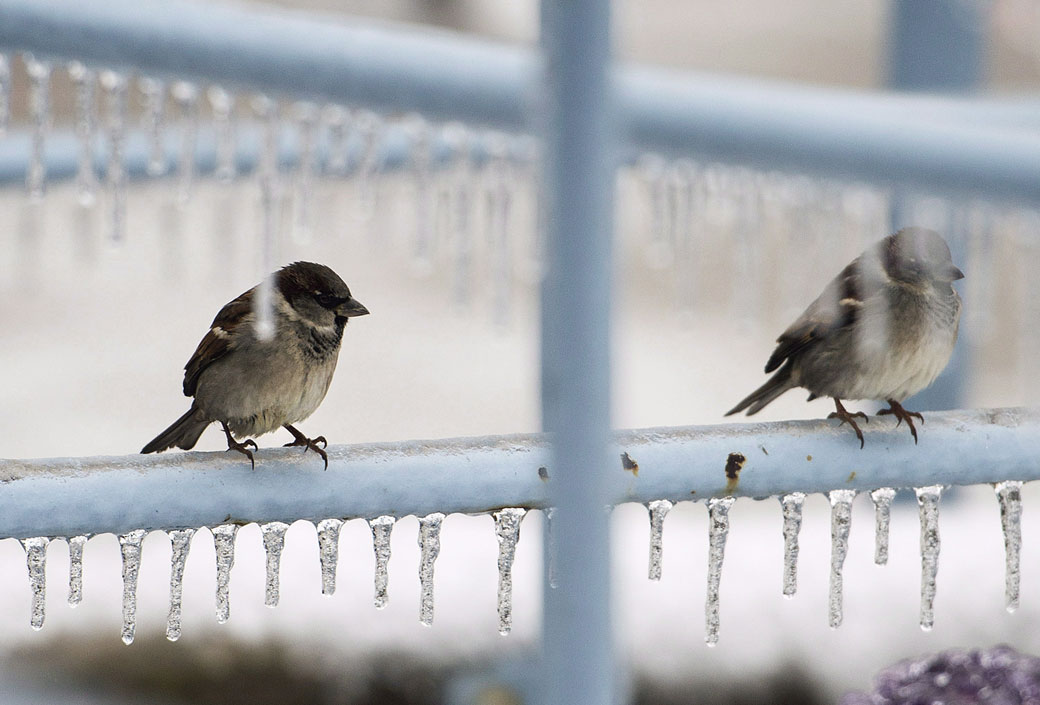TORONTO – This winter may have been tough on us humans, but it could prove more of a challenge to other life — or, in some cases, it could be a boon for them.

From December to March, most of Canada has seen a record cold and snow in some places straight across the country.
Parts of Ontario saw record snowfall, even record cold. In Toronto, the normal freeze and thaw never happened; the snow, though near average, remained on the ground for four months.
READ MORE: Will this be Canada’s coldest winter?
Though it’s difficult to say exactly what the effects of our long winter will be, Western University researchers, together with researchers at the University of Florida, have concluded that there will be some repercussions.
“My suspicion is that we might see a bit of a decrease in some insect populations, some things that are limited by cold,” Brent Sinclair, Associate Professor of Biological and Geological Sciences at Western University told Global News.
One of the primary reasons lies with how persistent the cold was this winter.
Usually, the ground may see freezing and some thawing, but the winter of 2013-2014 remained cold throughout the year.
READ MORE: Weather challenge–Who had the worst winter in Canada?
“One of the great examples was the cold winter and the change in habitat availability,” Sinclair said. “For example, in London we had all these sea ducks that would normally be over-wintering on the Great Lakes, but there was no open water there, so they turned up in London where there’s a little bit of open water.”
That may not seem like a problem. But Sinclair added that there could be cascading effects.
“They’re competing with the species that might ordinarily overwinter there; they might be having an impact on the things that they’re eating because you’re getting different predation pressure than you might normally expect,” Sinclair said. “So it’s always complicated.”
But the news isn’t necessarily bad. After years of warmer winters, this could bump things back to normal.
“One way it could be advantageous to some species, is that…some of the seasonal timing was maybe getting disrupted by things flowering earlier or insects emerging earlier and the birds still coming back at the regular time,” said Sinclair. “So we might see some spring breeding do a bit better.”
Jeremy Kerr, University Research Chair in Macroecology and Conservation and professor for the University of Ottawa’s Department of Biology, agreed that we will see changes, though it’s uncertain what they will be.
“We, as people are getting used to winters which are much warmer than the long-term normal wintertime in places like Ontario, but so are the species who live here. And that means they may experience quite unusual effects over the course of this summer,” Kerr told Global News.
The warmer winters that we’ve been experiencing means that some species such as the giant swallowtail butterfly are moving farther north. But with the long and cold winter we just experienced, it could push species like the giant swallowtail butterfly back to its normal habitat.
“Is their range going to be rolled back? Are their population numbers going to be decimated? We don’t know.”
Kerr noted, however, that it’s important to note that species span the entire country and that populations, with thousands of individuals, may see different effects dependent on the local conditions.
“I do expect that we’re going to see a significant population drop in some of these organisms that historically could never really handle the kinds of winters that we just had,” Kerr said.
Unfortunately, the longer winter we just came out of doesn’t mean that we will see invasive species, which are traditionally hardy, move out of the region. We may still have to deal with the ash borer and mountain pine beetle after all.
As for the Great Lakes, the cold and snow of this winter means that they may see closer to average lake levels, which have seen somewhat lower-than-average levels for some time.
READ MORE: Snow, ice cover will boost Great Lakes levels
“I think that we’ve come into spring now with a reasonably good snow cover on a good portion of the Michigan-Huron basin,” Environment Canada Water Resources Engineer Chuck Southam told Global News. “There’s a better chance that we’ll see runoff this spring which would help us have a larger seasonal rise…But it’s still a little bit too early to say how much of a seasonal rise we’ll get.”
“The key message is, stay tuned.”



Comments